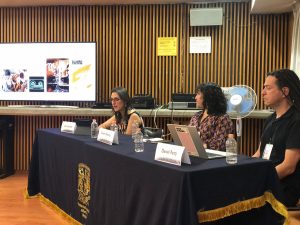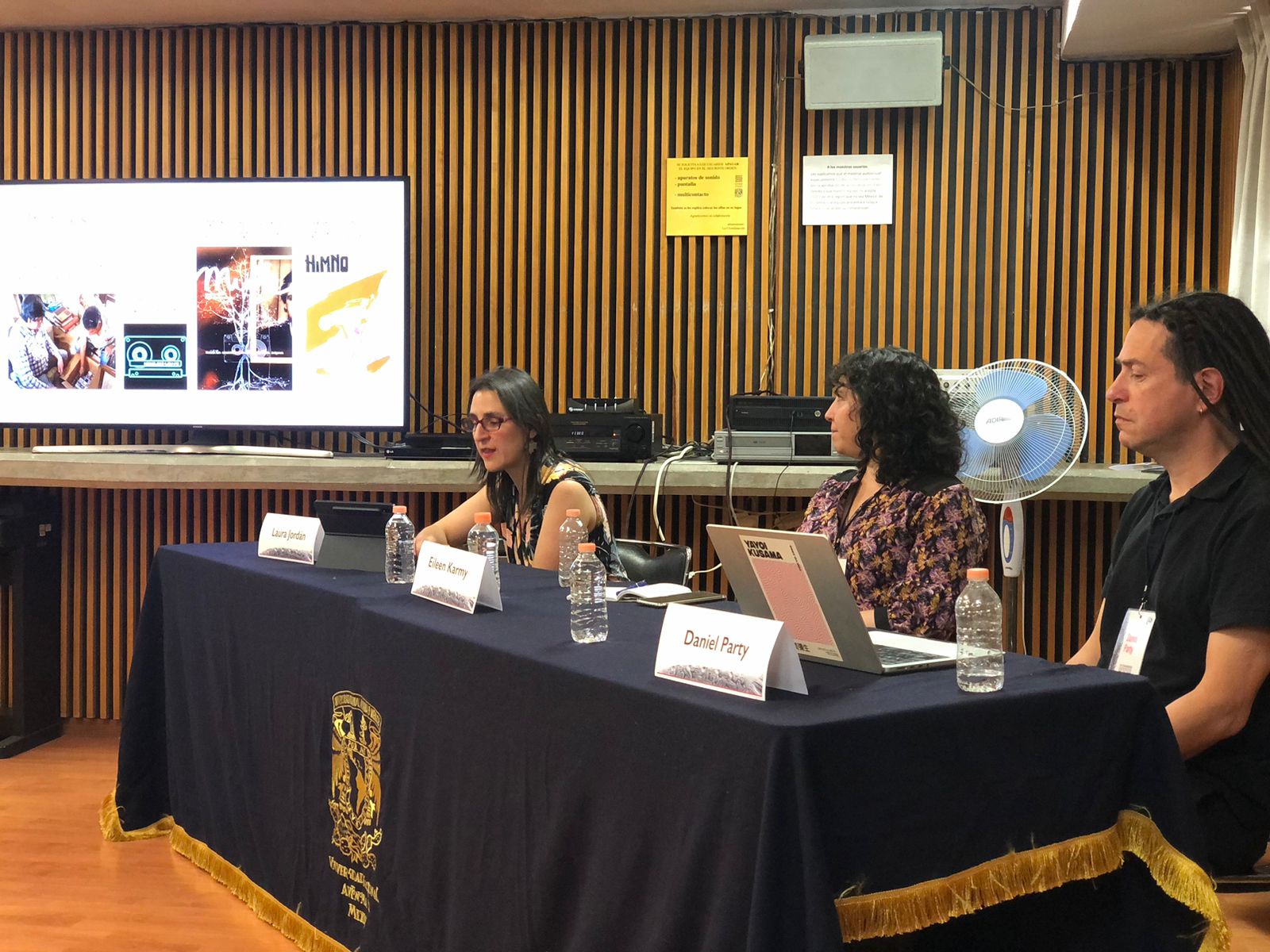CMUS researchers participate in ARLAC/IMS conference

The VI Congress of the Regional Association for Latin America and the Caribbean of the International Musicological Society (ARLAC/IMS) was held from August 7 to 10 at the Faculty of Music of the Autonomous University of Mexico (UNAM). Members of the CMUS participated in the various panels of this meeting.
Javier A. Silva-Zurita presented: The williche bandio: Essentialisms and cultural hybridization around an indigenous instrument in San Juan de la Costa, Chile and Christian Spencer Espinosa presented Population censuses as a source: the case of the “musicians and singers” of Chile (1875), as part of the panel Musicology, methods and sources.
Meanwhile, Daniela Fugellie participated in the panels: Historical recordings of Chilean classical music: tentative approaches to its study, Theoretical-methodological challenges for the study of musical circulations in the 20th and 21st centuries (Trajectory Network: Music between Latin America and Europe) and Processes of the Spanish Republican exile in Latin America from the perspective of music.
The CMUS “50 Years” working group participated with three presentations at the panel: Music and Commemoration of the 50th Anniversary of the Chilean Coup d’état.
Laura Jordán and Javier Rodriguez participated with: Present(s) of the cassette: memories and listenings of the Quilapayún Fund, where based on sound and historical archives, it was observed how the heterogeneous uses of the letter-cassette format not only circumscribed, between 1978 and 1983, the interaction between the Quilapayún groups in France and Ortiga in Chile (in the exterior/interior tension), but also provoked the emergence of an early memory about the Chilean song in the process of obliteration, whose content will distance itself from the processes of patrimonialization of culture during the post-dictatorship in Chile.
Elieen Karmy and Martín Farias presented: 50 years of the anthem that is sung, shouted, and marched: El pueblo unido nunca será vencido. From the perspective of the social biography of a song (Mendívil 2013) and intertextuality, they analyzed the song “El pueblo Unido nunca será vencido,” composed in 1973 by Sergio Ortega and Quilapayún. How did it become an international political anthem? How have its meanings changed in these 50 years? What does it tell us today about the events of the past?
Finally, Daniel Party was present with Victor Jara 50 years after his death. In 2023, there was a significant increase in the number of events and launches to commemorate the fiftieth anniversary of Víctor Jara’s death. Among them, the publication of two new biographies stands out, both the result of years of archival work and interviews (Amorós 2023; Stock 2023).
What contributions do these new biographies make in relation to the previous ones (Jara 1983; Kósichev 1990)? What do their approaches suggest regarding how to listen to, understand, and commemorate Víctor Jara in Chile today? What approaches remain pending for future research?


